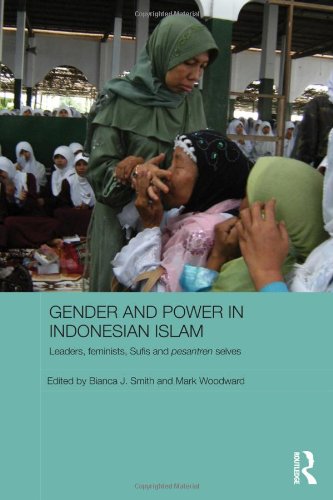

Most ebook files are in PDF format, so you can easily read them using various software such as Foxit Reader or directly on the Google Chrome browser.
Some ebook files are released by publishers in other formats such as .awz, .mobi, .epub, .fb2, etc. You may need to install specific software to read these formats on mobile/PC, such as Calibre.
Please read the tutorial at this link: https://ebookbell.com/faq
We offer FREE conversion to the popular formats you request; however, this may take some time. Therefore, right after payment, please email us, and we will try to provide the service as quickly as possible.
For some exceptional file formats or broken links (if any), please refrain from opening any disputes. Instead, email us first, and we will try to assist within a maximum of 6 hours.
EbookBell Team

4.4
32 reviewsThe traditional Islamic boarding schools known as pesantren are crucial centres of Muslim learning and culture within Indonesia, but their cultural significance has been underexplored. This book is the first to explore understandings of gender and Islam in pesantren and Sufi orders in Indonesia. By considering these distinct but related Muslim gender cultures in Java, Lombok and Aceh, the book examines the broader function of pesantren as a force for both redefining existing modes of Muslim subjectivity and cultivating new ones. It demonstrates how, as Muslim women rise to positions of power and authority in this patriarchal domain, they challenge and negotiate "normative" Muslim patriarchy while establishing their own Muslim "authenticity." The book goes on to question the comparison of Indonesian Islam with the Arab Middle East, challenging the adoption of expatriate and diasporic Middle Eastern Muslim feminist discourses and secular western feminist analyses in Indonesian contexts. Based on extensive fieldwork, the book explores configurations of female leadership, power, feminisms and sexuality to reveal multiple Muslim selves in pesantren and Sufi orders, not only as centres of learning, but also as social spaces in which the interplay of gender, politics, status, power and piety shape the course of life.